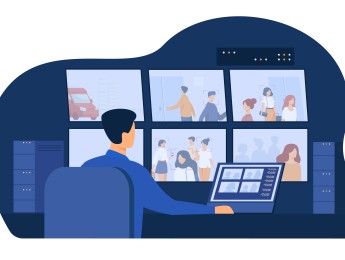From the public relations manager to the admin team, understanding the intricacies of public relations is vital for ensuring and supporting a company's reputation, brand, and image. This includes staff who come into contact with the external and internal public within the scope of their job, even though PR may not be a defined part of their job description. There are many issues and problems a company can experience from poor public relations management. Hence, all staff must have a basic understanding of the key functionality of public relations. This course will equip delegates with the skills needed to ensure that communications in the public arena are well formulated and effective while supporting the company, not creating problems and bad press. This means understanding that written and verbal communication are very different skills. Not grasping the subtle issues involved in non-verbal written communication can easily inadvertently offend and cause problems. The course offers an excellent grounding for all staff who may be interested in planning and executing a press conference and gives the skills needed to make a positive impact. There is also an explanation of the changing landscape of public relations and why this is important for public relations personnel to understand.
Upon completion of this course, participants will be able to:
- Define the role of public relations officers clearly
- Demonstrate public relations functionality in a changing world
- Show critical skills in communication
- Practice essential techniques in PR
- Confidently deal with members of the internal organisation
- Confidently communicate with external public bodies and individuals
- Demonstrate how PR professionals support reputation/brand/image
- Define the steps required to plan a press conference
- Execute and present a press conference
This course is intended for
- Public Relations Managers
- Supervisory roles in PR
- Professionals with public-facing roles
- Marketing professionals
- Sales managers
- PR officers
- Human resource/personnel/training officers
- PR Administration Staff
- Roles with internal communications
- Roles with external communications
Teaching takes place in a variety of settings, including face-to-face classroom teaching. It will ensure that participants can expand their knowledge of the subject and increase their skill set. The course is delivered via various methods by a specialist tutor. This will include PowerPoint presentations, reviewing articles and other relevant materials, group or individual exercises and discussions. There may be some independent work set, and the course will require submitting articles to demonstrate understanding and an end-of-course test. Note-taking is encouraged, and you are welcome to use electronic devices to do this. The course manual will form part of the learning but give you references for the future. You are encouraged to ask questions and, if needed, spend time one-on-one with your tutor to go over any issues. You can network with peers in similar roles during your time in the classroom.
Day 5 of each course is reserved for a Q&A session, which may occur off-site. For 10-day courses, this also applies to day 10
Section 1: Public Relations: An Ever-Changing Environment
- What are the origins of public relations
- How have public relations developed
- Defining public relations
- Understanding the objectives and scope of PR
- Changing perspectives in PR
- How this impacts roles and brings new roles
- How PR can support and build brand/image and reputation
Section 2: Defining Public Relations Functions
- Understanding how to plan PR activities
- Making planning PR activities successful
- Organising a public relations activity
- The skills need from public relations professionals
- What are the roles of PR within an organisation
- Understanding how other staff can impact PR
Section 3: Communication and Problem Interactions within PR
- The key communication differences: Internal vs. external public
- How to overcome any barriers to communication
- Understanding how non-verbal communication can cause issues
- The skills of communication needed for PR professionals
- Encountering difficult personalities and understanding them
- Strategies for dealing with complex interactions and personalities
Section 4: Skills in Verbal Communication for PR
- Verbal communication: The different types
- Skills and preparation for speeches and presentations
- The importance of rehearsing a presentation or speech
- Getting feedback from colleagues
- Fielding questions in a live arena
- The non-verbal skills and verbal skills of presenting
Section 5: Skills in Written Communication for PR
- Written Communication: The different types
- Differing writing skills for emails/letters and memos
- Etiquette in written communication
- Understanding how issues arise from poor written skills
- Newsletter writing and production
- Putting together brochures - design through to production
- Magazine article writing
Section 6: Public Relations and Press Conferences
- When/why do we need press conferences
- Understanding the rules of conducting press conferences
- Press release 101 - preparation, format and writing skills
- Press conference management, including fielding questions
- What are press clippings
- The importance of preparing/circulating press clippings
Upon successful completion of this training course, delegates will be awarded a Holistique Training Certificate of Completion. For those who attend and complete the online training course, a Holistique Training e-Certificate will be provided.
Holistique Training Certificates are accredited by the British Assessment Council (BAC) and The CPD Certification Service (CPD), and are certified under ISO 9001, ISO 21001, and ISO 29993 standards.
CPD credits for this course are granted by our Certificates and will be reflected on the Holistique Training Certificate of Completion. In accordance with the standards of The CPD Certification Service, one CPD credit is awarded per hour of course attendance. A maximum of 50 CPD credits can be claimed for any single course we currently offer.
- Course Code PM2-105
- Course Format Classroom, Online,
- Duration 5 days














